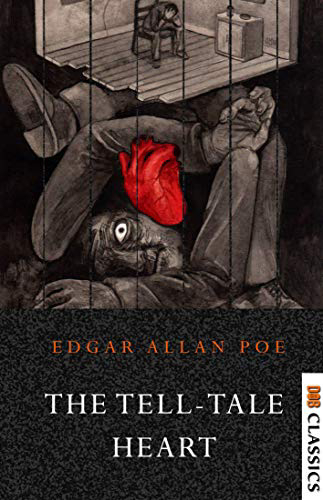"The Tell-Tale Heart" by Edgar Allan Poe:
The story begins with the narrator explaining that they are not insane.પાગલ
The narrator is obsessed ( who cannot think of anything else) with the pale blue eye of an old man with a vulture-like appearance. They claim that this eye is evil and is the reason for their madness.
Over the plan of seven nights, the narrator carefully watches the old man as they sleep, preparing to enact ઘડવો a sinister plan (અશુભ યોજના બનાવો) . They are convinced that the eye is watching them.
On the eighth night, driven to madness, the narrator enters the old man's room and kills him by smothering (covering his/her face so that he/she cannot breathe him) to death. However, the old man's eye is the only thing they truly fear.
The narrator dismembers(cut a dead body into pieces )the body and hides it under the floorboards of the old man's room.
They believe that the house is now quiet and they have succeeded in concealing (છુપાવવું) their crime.
Neighbors hear a scream ચીસો and call the police. The narrator invites the officers into the old man's room, feeling confident that they have gotten away with the murder.હત્યા કરીને ફરાર થઈ ગયો.
As the police question the narrator, they begin to hear a faint ચક્કર but increasingly loud and maddening heartbeat. The sound appears to be coming from under the floorboards where the old man's body is hidden.
Overwhelmed (to be so powerful )by guilt and the relentless નિષ્ઠુર sound of the heartbeat, the narrator confesses to the murder, believing that the police can also hear the heartbeat.
The story ends with the narrator's confession, revealing their descent ઉત્પતિ into madness, as they are convinced that they can hear the dead man's heart still beating, leading to their ultimate downfall.
The story illustrates how a guilty conscience can lead to madness and ultimately self-exposure.




No comments:
Post a Comment